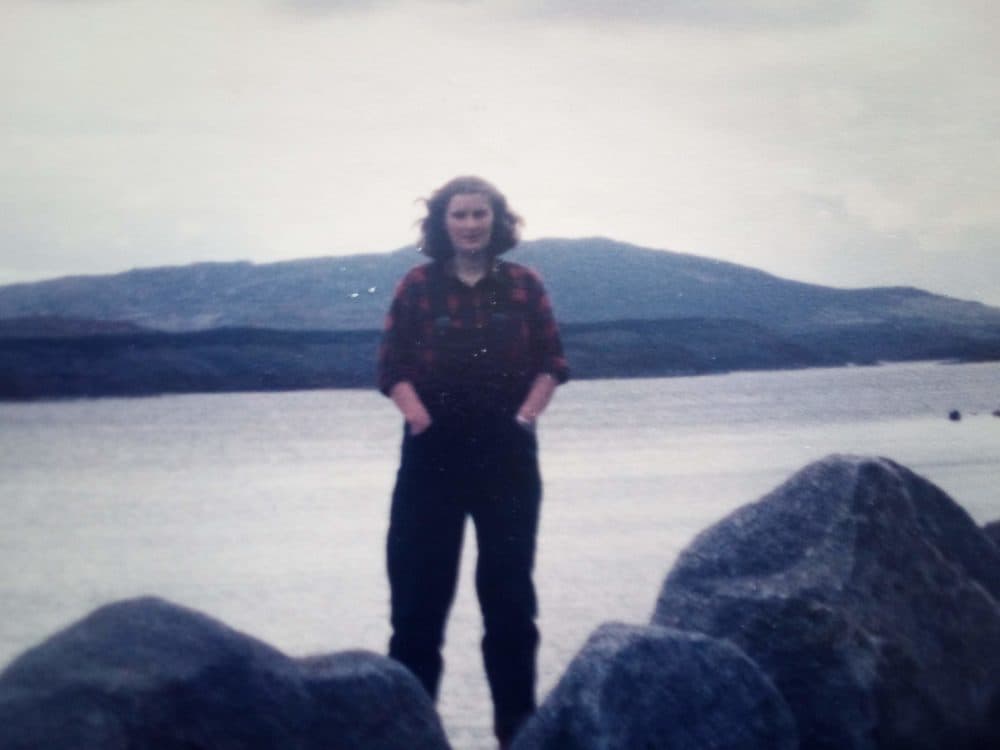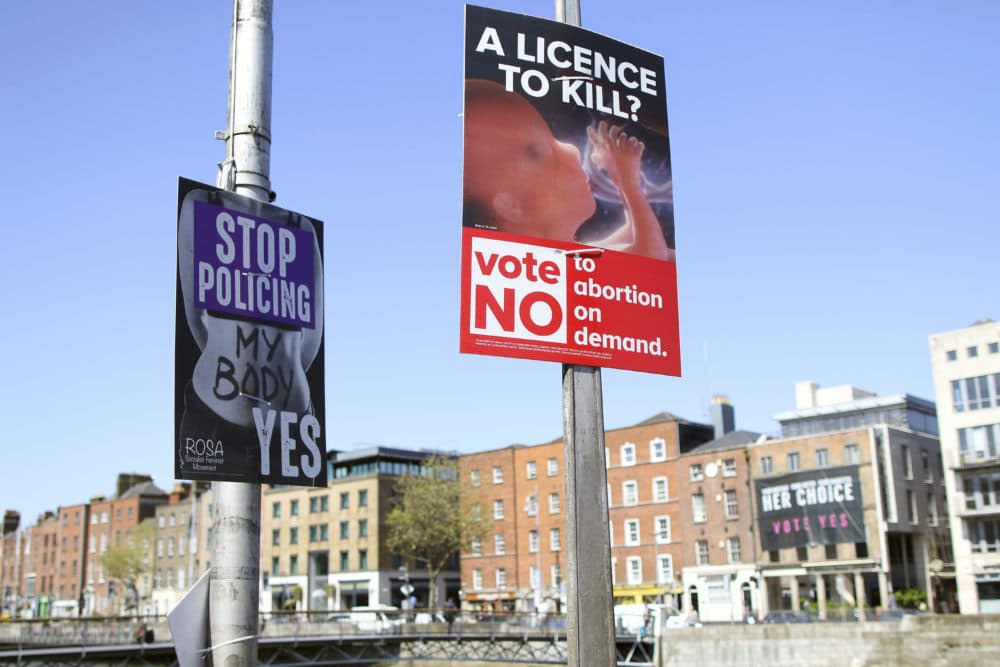Advertisement
Commentary
The Shame And Peril Of Living In A No-Abortion State

I was about 13 when I heard a real-life story about a back-alley abortion. It happened at a bus depot near my school in south County Mayo, in the west of Ireland. Early one morning, a school bus driver arrived for his usual morning route, when he allegedly found the bloody evidence of an abortion gone wrong.
Back then — the late 1970s — this story had a mythological, foreign-movie feel to it. I cannot remember how we heard or knew the reputed source of all that blood on the back seat. Neither can I recall a TV or newspaper report.
According to local gossip, the amateur abortionists were city-slicker medical students, one of whom was dating the girl who bled out on the back seat.
This is now a cautionary tale of what can happen when a government legislates a near-total ban on all medical abortions, like the state of Alabama in 2019.
It's not that we Irish girls didn't get pregnant or opt to terminate. According to one U.K. Department of Health report, from 1980-2016, approximately 170,000 Irish women received a medical abortion from a British healthcare provider. This does not include those women who issued a fake or non-Irish address. Other women traveled to Holland, while, more recently, still others ordered abortion pills online.

In fact, Irish women accounted for 67.9% of all the U.K’s non-resident abortions, and in 2016 alone, a reported 3,265 females journeyed from Ireland to end their pregnancies.
As college students and young working women, we all knew someone who had to “take the boat”-- a euphemism for that cross-channel termination trip that was, until 1992, illegal. Absurdly, until 1985 in Ireland, so was any access to contraception for single men or women. After 1985, at least for us rural women, legal never meant available.
Legal or not, "taking the boat" was a highly covert operation. Long before the advent of low-budget airlines, some women emptied their savings for an inter-city flight. Others took the night ferry and then a south-bound British Rail train. One friend I knew stayed with a friend’s older sister. Another rented a cheap room in a guest house. Both of these provided an address for the clinic’s intake forms.
This was medical exile, in which one country looked the other way while another nation provided women reproductive health services.
Now I fear that interstate medical exile may be the only option for the women of Alabama, Arkansas, Georgia, Kentucky, Louisiana, Mississippi, Missouri, Ohio and Utah — the nine U.S. states that have recently passed strict anti-abortion legislation.
I've taken those nighttime Dublin-to-Liverpool and Dublin-to-Holyhead ferries. Back in the 1980s, in terms of speed or comfort or privacy, they ranked just a few notches above a cattle boat. Through a combination of luck or fear, I wasn’t headed to an abortion clinic. However, looking back, I’m not sure which haunted my young life and stymied my sexual and romantic opportunities more: the specter of that cross-channel journey or the fear of a pregnancy that would end in familial banishment and being fired from my government job.
I was in Ireland last year, on May 25, during the referendum to repeal the Eighth Amendment, the law that had, since 1983, effectively outlawed all medical abortions. In a diverse, educated and social-media-connected Ireland, pro-life and pro-choice camps lobbied for their respective victories. However, until the final exit polls, nobody could really predict the outcome.

Two-thirds of Ireland's electorate voted to repeal, a pro-choice win that seemed to mark the end of the country's religiously-dominated laws and misogyny. For the next eight months, the government worked to institute the legislation that, since January 2019, allows medical abortion services up until 12 weeks of pregnancy. Beyond this, services are available for cases of fatal fetal abnormalities or when the life and health of the mother are at risk.
Just over one year on, a reported 319 primary care doctors and 10 out of 19 hospital-based maternity units are providing services. (Among participating hospitals, there is some exemption for those staff who have conscientious objections.)
But some access issues persist. In some cases, the mandated three-day wait for abortion medication challenges that 12-week timeline — an added barrier for rural or migrant women. Also, following pro-life protests outside some health facilities, legislation has been proposed to provide protest exclusion zones, while some pro-life supporters have established fake helplines and advice websites.
This was medical exile, in which one country looked the other way while another nation provided women reproductive health services.
But can Ireland’s new abortion law and services really erase the Irish government's decades of abdicating from its medical responsibility to almost 50% of the country's citizenry or residents? Can it ever negate all those secret and demeaning boat trips?
In America, the option to cross state lines to terminate a pregnancy will only be available to women who can afford to drive or fly, who have adequate or reliable childcare at home and who can self-pay for an out-of-insurance-network procedure.
There will be women who cannot travel, and many of these women will hail from U.S. states with persistently shameful statistics for infant mortality, prenatal care, child welfare, nutrition and education.
So for those women forced to bear children they cannot afford, or children who were conceived in sexual violence, what new family-support services are these nine state governments now working to provide?
